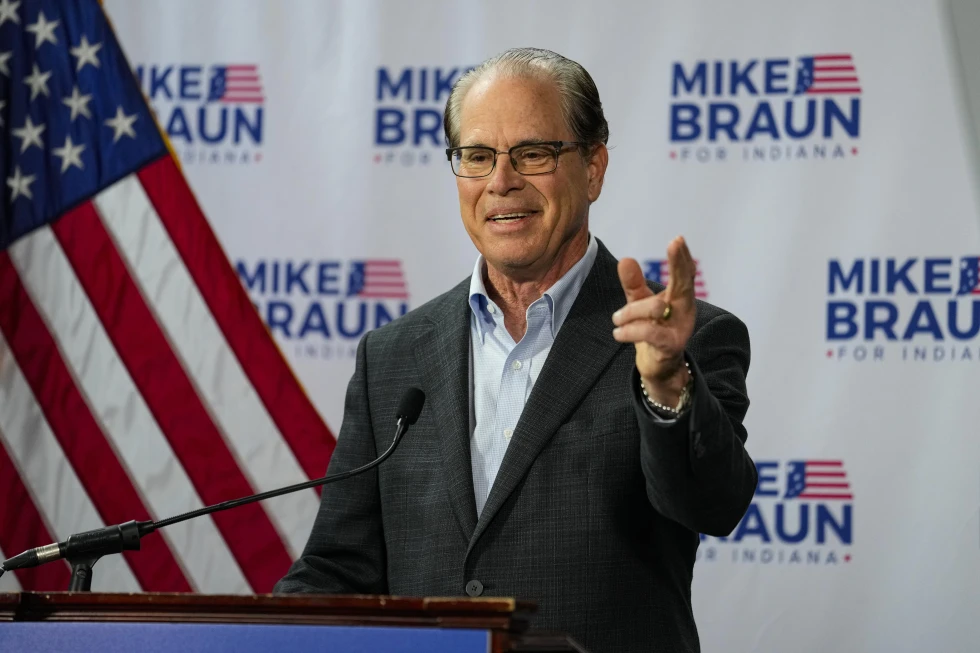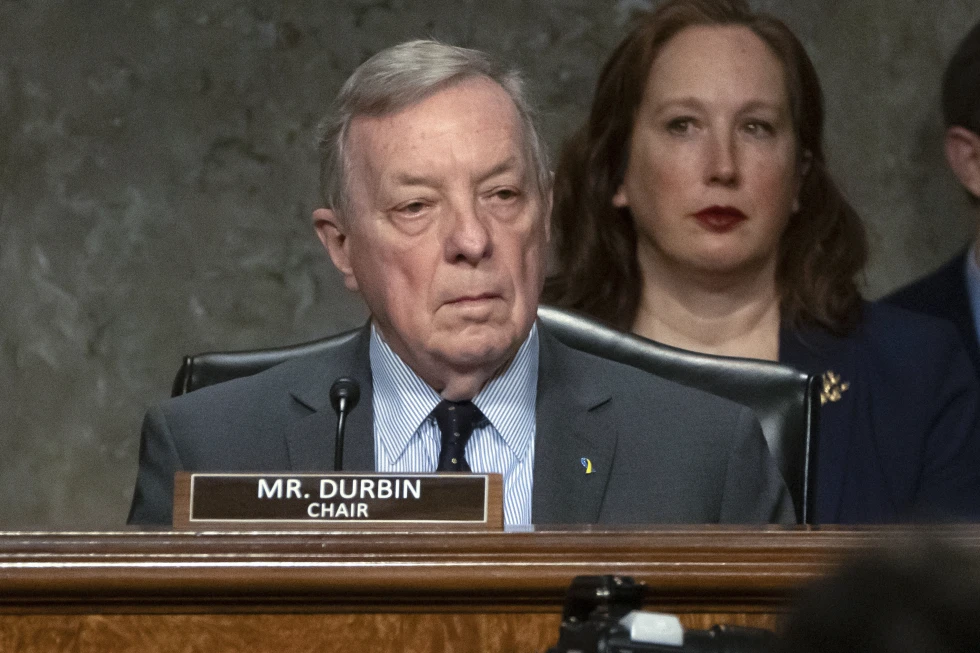|
Getting your Trinity Audio player ready...
|
New Legislation Aims to Close Regulatory Gaps
Edited by: TJVNews.com
In a move aimed at curbing the deceptive promotion of weight-loss and prescription drugs online, two U.S. senators have introduced bipartisan legislation that would give the Food and Drug Administration (FDA) expanded authority to monitor and penalize misleading content. According to a report in The Wall Street Journal, the proposed bill, introduced by Senators Dick Durbin (D., Ill.) and Mike Braun (R., Ind.), is a direct response to growing concerns over the role social media influencers and telehealth companies play in shaping public perceptions of prescription drugs, often omitting critical information about safety risks.
The bill would empower the FDA to issue warnings and impose fines on individuals or companies that post false or incomplete information about medications, including popular weight-loss drugs such as Ozempic and Wegovy, which have gained widespread attention on platforms such as TikTok, Instagram, and YouTube, as per the information provided in the WSJ report. By targeting misleading online promotions, the legislation seeks to close a regulatory gap in how drug advertisements are governed—particularly those originating from influencers or telehealth companies without a formal relationship with the drug manufacturers.
The growing popularity of telehealth firms and social media influencers has introduced new challenges in regulating the marketing of prescription drugs. The WSJ report indicated that in recent years, drugs such as Ozempic and Wegovy, manufactured by Novo Nordisk, have been increasingly marketed through social media posts that focus on their weight-loss benefits. However, these posts often omit critical information about a drug’s side effects or present an overly favorable view of its benefits. Many influencers are compensated by telehealth companies or indirectly by drug manufacturers, creating a financial incentive to promote medications even when they may not be suitable for certain patients.
The new legislation seeks to address these issues by holding influencers and telehealth companies to the same standards as traditional pharmaceutical advertising. Under current regulations, drug manufacturers are required to disclose important information about the risks and benefits of their medications in any promotional content. However, these rules do not fully extend to influencers or telehealth companies, especially when they do not have a direct relationship with the drug manufacturer, according to the WSJ report. This loophole has allowed for the dissemination of misleading information, contributing to the rising demand for drugs that may not be appropriate or safe for all consumers.

One of the primary components of the bill is the requirement for drugmakers to disclose payments to influencers through the federal Open Payments database, which currently tracks payments made by pharmaceutical companies to physicians and healthcare providers, as was revealed in the WSJ report. This transparency measure would allow regulators and the public to see who is being paid to promote prescription drugs online, helping to reveal any potential conflicts of interest. By shining a light on financial relationships between influencers and drugmakers, the bill seeks to ensure that consumers are fully informed about the sources of drug promotion.
Additionally, the bill grants the FDA authority to issue formal warning letters to influencers and telehealth companies that engage in deceptive or misleading drug promotions. These letters would serve as a first step in the enforcement process, giving offenders an opportunity to rectify their posts and provide accurate information about the medications they are promoting. The WSJ report added that if the influencer or telehealth firm fails to comply with the warning, they would face fines of up to $250,000 for the first violation within a three-year period and up to $500,000 for subsequent violations during that same time frame.
A Wall Street Journal investigation in 2024 brought these issues to the forefront, uncovering how demand for these drugs surged as a result of online promotions that frequently failed to mention the risks of using them. According to the WSJ’s findings, social media influencers and telehealth companies profited by capitalizing on the growing popularity of weight-loss medications, but often skirted FDA requirements for transparency about the risks associated with these drugs. While the FDA already requires pharmaceutical companies to disclose safety risks in their advertisements, many of these influencer and telehealth posts operate in a regulatory gray area, leading to a proliferation of misleading content.
The reporting from the Wall Street Journal was a key factor in pushing Sens. Durbin and Braun to act. “Social media is increasingly becoming a marketplace for health products, but when it comes to prescription drugs, misleading or incomplete information can have life-threatening consequences,” Durbin said in a recent statement, as was noted in the WSJ report. The bipartisan push reflects the urgency of addressing this emerging issue in a landscape where traditional FDA regulations have yet to catch up with modern marketing practices.
While the FDA already has the power to regulate drug advertisements from manufacturers, the rules become murky when influencers or telehealth firms enter the picture without a direct connection to the pharmaceutical companies. According to the WSJ report, these parties can bypass the stringent requirements for disclosing side effects, allowing them to present drugs in a more favorable light while omitting critical safety information.
Durbin and Braun’s bill addresses this loophole by extending the FDA’s oversight to include any party promoting prescription drugs online, regardless of their formal ties to the drug manufacturers. The bill specifically targets influencers and telehealth firms that profit from promoting drugs but often fail to provide their audiences with balanced, medically sound information.
Telehealth companies have emerged as major players in the healthcare landscape, offering patients convenient access to prescription drugs through online consultations. Many of these companies partner with influencers to market their services, driving sales through the promotion of prescription medications, including weight-loss drugs. However, investigations have revealed that some telehealth companies fall short in vetting the accuracy of the content influencers post.
In response to growing criticism, some telehealth companies have stated that they provide comprehensive safety information to patients and that they have procedures in place to ensure influencer posts are vetted for accuracy. Despite these claims, critics argue that the system lacks sufficient oversight, and many posts continue to mislead consumers by omitting critical health risks.
Senators Durbin and Braun first raised their concerns earlier this year when they called on the FDA to take action against the marketing of prescription drugs on social media. The report in the WSJ indicated that in a letter to the FDA commissioner, the senators highlighted the proliferation of dangerous content from telehealth companies, referencing findings from a Wall Street Journal investigation published in 2022 that revealed how some firms were running misleading ads to attract patients.
The problem, as outlined in these investigations, is that many social media posts touting the benefits of drugs such as Ozempic or Wegovy fail to present a complete picture. For example, while these drugs are effective in promoting weight loss, they also come with side effects such as nausea, diarrhea, and potential complications for people with certain health conditions, as per the WSJ report. These side effects are often not mentioned in influencer posts, giving the impression that the drugs are miracle solutions without any downsides.
A key challenge the new legislation seeks to address is the regulatory gap between traditional pharmaceutical advertising and the new frontier of social media marketing. Drug manufacturers are bound by strict FDA rules requiring them to disclose risks and benefits in their advertisements, ensuring that consumers are provided with balanced information. However, when it comes to social media promotions that lack a direct link to the manufacturers, the same level of oversight is often missing.
The FDA’s current rules around drug advertisements apply to posts sponsored directly by pharmaceutical companies, but influencers and telehealth companies promoting the same products have largely flown under the radar. Without the formal backing of the drug manufacturers, these posts are not always subject to the same regulations, allowing misleading or incomplete information to proliferate unchecked.
While the bill has garnered bipartisan support, it also faces potential challenges, particularly from telehealth companies and influencers who profit from the current system. How these parties respond to increased regulation—and whether the legislation ultimately passes—will shape the future of drug promotion in the digital age.





